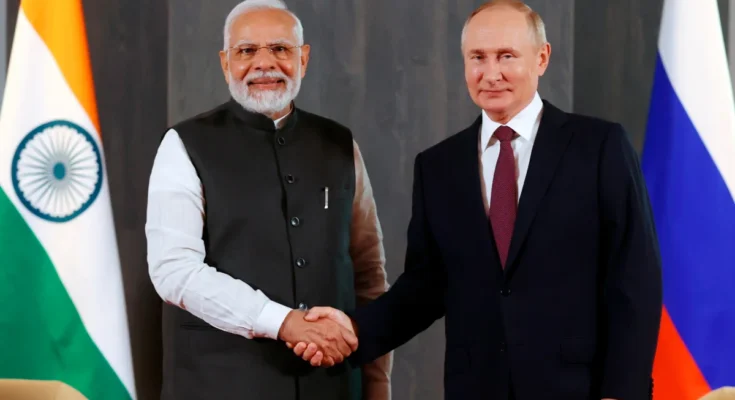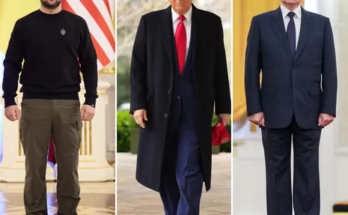As global alliances continue to shift in the wake of war, sanctions, and rising protectionism, Russian President Vladimir Putin’s planned visit to India in August 2025 is drawing global attention. This high-level diplomatic engagement is expected to shape not just regional partnerships, but potentially alter global power dynamics. With the U.S., China, and Russia all aggressively pushing their strategic agendas, India’s role as a diplomatic swing-state is now more important than ever.
A Long-Standing Relationship
India and Russia share a relationship that predates their current political leaders. From Cold War-era defense collaborations to more recent energy deals, the India-Russia alliance has been both consistent and resilient.
Over the years, ties have evolved to encompass:
-
Defense: Russia remains India’s largest arms supplier.
-
Energy: India imports large volumes of discounted Russian oil and gas.
-
Space cooperation: The Gaganyaan human spaceflight program includes Russian technology.
-
Diplomacy: The two countries have consistently supported a multipolar world order.
Putin’s upcoming visit is seen as a continuation of this robust bilateral engagement, even as Russia faces increasing isolation from the West.
What’s on the Agenda?
Though official agendas haven’t been disclosed, sources in both Moscow and New Delhi hint at the following high-priority topics:
1. Energy Deals
India has emerged as a top buyer of Russian crude following Western sanctions. Talks are expected to expand:
-
Long-term LNG contracts
-
Investment in Russian oil infrastructure
-
Technology transfers in green energy
2. Defense Procurement
Despite India diversifying its arms sources (including France, the U.S., and Israel), Russian platforms still form the backbone of India’s defense forces. Discussions may include:
-
New orders for S-400 missile systems
-
Modernization of older Russian platforms
-
Joint production of next-gen equipment
3. Multipolar World Order
Both nations will likely reaffirm their commitment to a non-Western-led global structure, where BRICS, SCO, and other regional forums serve as alternatives to G7 or NATO-aligned blocs.
Why This Visit Matters — A Global Perspective
A Tilt Toward the East?
As relations between Russia and the West hit historic lows over the Ukraine war and sanctions, India remains one of the few global powers engaging constructively with all sides.
This visit is crucial for Moscow as it:
-
Seeks economic alternatives to Western markets
-
Looks to showcase international legitimacy
-
Pushes its Asia pivot strategy forward
🇮🇳 India’s Delicate Balancing Act
For India, the visit presents both opportunity and challenge. While stronger ties with Russia support its energy and defense needs, India must walk a tightrope:
-
Maintaining warm ties with the U.S. and EU
-
Upholding its non-aligned foreign policy image
-
Navigating tensions between Russia and Ukraine, as well as China and the West
Timing: Not a Coincidence
The visit comes on the heels of:
-
Trump’s re-escalated tariff war with China and EU
-
Gaza and Ukraine conflicts continuing to destabilize diplomacy
-
A potential Trump-Putin summit, rumored to take place in UAE
Amidst these developments, Putin’s India trip is a calculated signal to the world—that Russia is far from isolated, and that global South alliances are not only intact but expanding.
What India Gains
India’s geopolitical strategy hinges on multi-alignment, not choosing sides. Putin’s visit helps New Delhi:
-
Cement energy security for the coming winter
-
Negotiate better terms on arms & tech transfers
-
Enhance its role as a mediator in the Russia–Ukraine crisis
-
Reinforce its global stature as a diplomatic pivot
In short, it shows that India has the global clout to host major powers from both camps—be it Russia or the U.S.
Western Reactions: Eyes on New Delhi
While no official condemnation is expected from Washington or Brussels, Western analysts and media are likely to scrutinize the optics. Some may view the visit as a sign that India isn’t doing enough to isolate Putin.
However, India’s consistent message has been clear:
“Engagement is not endorsement.”
India continues to advocate for diplomacy, de-escalation, and peace, whether it’s in Ukraine, Gaza, or Taiwan.
Will There Be Surprises?
Sources suggest a possible trilateral announcement involving Russia, India, and Iran—possibly around trade routes or infrastructure (e.g., North-South Transport Corridor). There’s also buzz about:
-
A new BRICS+ expansion roadmap
-
Potential for a currency pact avoiding the U.S. dollar
-
Joint space or AI technology ventures
While still speculative, such announcements would make global headlines and redefine alliances.
Conclusion
Vladimir Putin’s visit to India isn’t just a diplomatic courtesy—it’s a strategic signal in an increasingly fragmented global order. For India, it’s a moment to assert its influence. For Russia, it’s a lifeline and a show of strength. And for the world, it’s another reminder that new alliances are forming beyond the West.
As August unfolds, all eyes will be on New Delhi.
FAQs
Q1: Why is Putin visiting India in August 2025?
To deepen bilateral ties, especially in energy, defense, and global diplomacy, amid Russia’s growing isolation from the West.
Q2: Will this impact India’s relationship with the U.S.?
Not directly. India maintains a balanced foreign policy and continues strategic ties with the U.S. while engaging Russia diplomatically.
Q3: What might be signed during the visit?
Possible energy agreements, defense deals, and multipolar alignment statements. A trilateral with Iran is also rumored.
Q4: Is India siding with Russia in the Ukraine war?
No. India maintains a neutral stance, urging peace and dialogue while continuing relations with both Russia and Ukraine.




